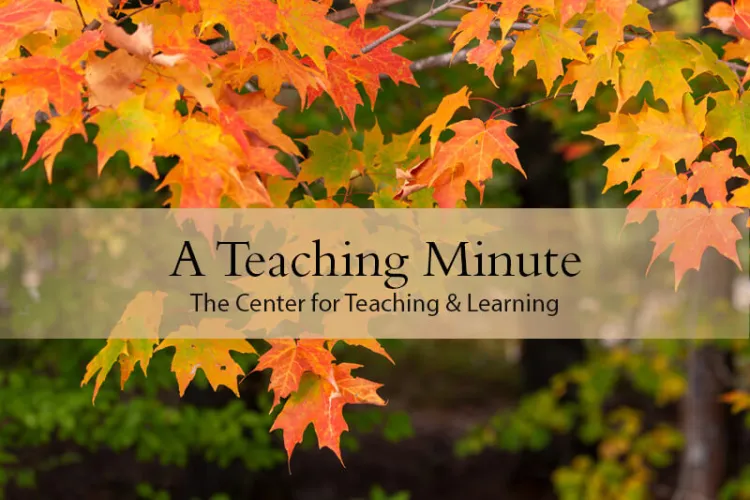
Metacognition
Friday, 10/11/2024
We now turn to the third principle within An Evolving Framework for Inclusive and Equitable Pedagogy, Lower Barriers to Success—Metacognition.
Metacognition helps students reflect on how they learn, not just what they learn. By developing this awareness, students can adjust their learning habits and use strategies that better support their growth.
The challenge? Many students enter college without these skills. What worked in high school may not meet the increased demands of college, leading to frustration.
So, how can we support students in developing metacognition in the higher ed classroom? Here are a few simple strategies:
- Reflection Questions – After a class or assignment, ask students to reflect on the learning process. Encourage them to consider:
- What questions do you still have after today’s class?
- What topic from today do you want to explore more?
- How has your understanding of something you knew before class changed?
- Concept Maps – Encourage students to create visual maps to connect ideas from the lesson, highlighting areas that require deeper exploration.
- “Close Reading” Exercise – Ask students to read a short passage and note two or three strategies they used to retain information. Then, have them compare strategies with a partner and debrief with the class.
- Take Notes from Memory – Have students summarize key points from memory after readings or lectures to actively engage with the material.
- Self-Testing – Integrate low-stakes quizzes or practice problems to help students assess their understanding before exams.
- Think Aloud – Encourage students to share their thought processes when solving problems, inviting new perspectives and approaches.
Recommended Reading: Teach Students How to Learn: Strategies You Can Incorporate Into Any Course to Improve Student Metacognition, Study Skills, and Motivation by Dr. Saundra Yancy Mcguire. The book is freely available with a UVM login.
Looking for more support? The UVM Tutoring Center offers resources to help students develop study skills and metacognitive strategies.